
North Korea announced Wednesday that the top decision-making body of the country's ruling party is to hold a key meeting in the coming days to discuss unspecified "important issues" and a "drastic turn" of its revolution.
The Political Bureau of the Central Committee of the Workers' Party of Korea has decided to convene its plenary meeting before the end of the month, according to North Korea's official KCNA news agency.
The meeting will "discuss and decide an important issue for victoriously advancing the Korean revolution and making a drastic turn in accomplishing the Juche revolutionary cause," it said.
The announcement came amid escalating tensions in the Korean Peninsula following Pyongyang's third nuclear test as North Korea also said Wednesday it had decided to cut its last channel of communication with the South.
"Under the situation where a war may break out at any moment, there is no need to keep north-south military communications which were laid between the militaries of both sides," the KCNA quoted a military spokesman as saying.
"No dialogue channel or means of communication exist between the DPRK and the US and between the north and the south," it said.
Cai Jian, a deputy director of the Center for Korean Studies at Fudan University, told the Global Times that the timing of the meeting was not necessarily related to the situation on the Korean Peninsula, noting that the meeting had already been decided even before North Korea's nuclear test.
"It is possible that the country's leadership will mainly discuss domestic issues, such as the economy, as it is a tradition for them to make key decisions on such occasions," he added.
"But I don't expect any major North Korea policy shift in the meeting despite its statements of a 'drastic turn' although Pyongyang might make some adjustments to improve people's livelihoods at home," Cai said.
It is the first time for the top decision-making body of North Korea's ruling party to hold such a meeting since the country's new leader Kim Jong-un came to power in December 2011.
Professor Yang Moo-jin of the University of North Korean Studies in Seoul told AFP that Jang Song-thaek, uncle of Kim, could be appointed prime minister and given the task of resuscitating the country's economy, and Vice Marshall Hyon Yong-chol, the chairman of North Korea's Joint Chiefs of Staff, could join the Presidium of the Political Bureau, giving the military more of a say in state affairs.
Zhang Liangui, a specialist in Korean issues at the International Strategic Research Bureau at the Party School of the Central Committee of CPC, told the Global Times that North Korea has already successfully boosted military capabilities through its recent missile and nuclear tests and may now shift its focus to building the economy.
Zhang said North Korea may also use the opportunity to reaffirm its strong stance to the South and the US. "Pyongyang might renew its pledge to launch a holy war for the unification of the Korean Peninsula because it will be more assertive after improving its nuclear capabilities."
"I think all its recent threats are aimed at deterring the US from interfering in Korean affairs once a large-scale conflict breaks out between the two Koreas," he added.
North Korea has been ramping up its war rhetoric against the US and South Korea after the UN slapped it with fresh sanctions on March 7 for its third nuclear test.
On March 11, it severed a Red Cross hotline with the South used for communications between the two Koreas, which do not have diplomatic relations. It also threatened to launch preemptive nuclear strikes against the US.
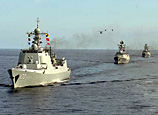
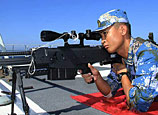

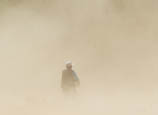
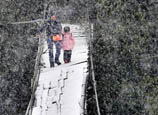



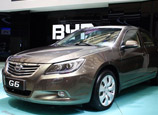
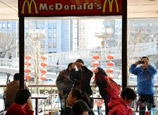






 Strong wind, thunder hit Liuzhou City in S. China's Guangxi
Strong wind, thunder hit Liuzhou City in S. China's Guangxi


![]()
